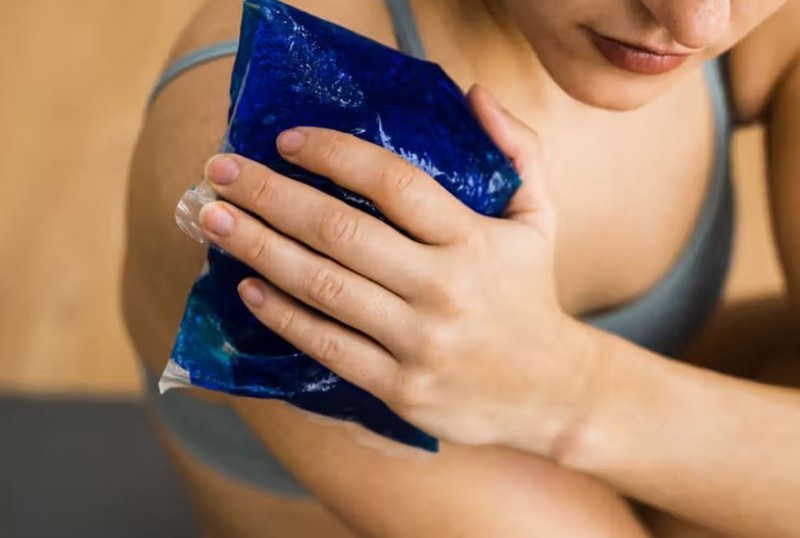
Internal muscle injuries often result in pain and swelling, even without visible wounds. While painkillers can offer temporary relief, addressing the root of the problem through proper treatment is essential for a full recovery. Fortunately, traditional remedies can effectively reduce pain and inflammation. Here’s a detailed guide on natural methods to alleviate muscle injuries.
Understanding Muscle Injuries
Muscle injuries can occur due to various reasons. Children often experience injuries while playing, and adults might sustain them during physical activities or accidents. Common scenarios include:
Strains: Overstretching or tearing of muscles.
Sprains: Ligament injuries often affecting the muscles.
Contusions: Bruising of the muscle tissue due to impact.
Overuse Injuries: Resulting from repetitive strain on muscles.
These injuries can cause significant discomfort, including localized pain, swelling, and reduced mobility. Addressing these symptoms with effective treatments is crucial for recovery.
Traditional Remedies for Muscle Injury Relief
Several traditional remedies can help reduce pain and swelling, promoting quicker recovery. Here are some effective methods:
Turmeric and Mustard Oil
Turmeric is renowned for its anti-inflammatory properties, while mustard oil helps in warming the affected area. To prepare a remedy:
Heat a small amount of mustard oil in a pan.
Add a tablespoon of turmeric powder to the oil.
Stir the mixture until it becomes well-blended and aromatic.
Allow it to cool to a lukewarm temperature.
Apply the warm mixture to the affected area.
Cover with a cloth or bandage and leave it on overnight.
Applying this remedy consistently for 7-8 days can significantly reduce pain and swelling due to its combined anti-inflammatory and warming effects.
Homemade Medicinal Oil
A specially prepared oil with a blend of healing ingredients can be very effective:
Combine mustard oil with crushed garlic, fresh turmeric, grated ginger, ground cinnamon, ajwain (carom seeds), and cloves.
Heat the mixture gently, allowing the ingredients to infuse into the oil.
Strain the oil to remove solid particles and store it in a clean bottle.
Apply the oil to the injured area regularly.
This blend of ingredients provides a synergistic effect that alleviates pain and inflammation and is also beneficial for conditions like arthritis.
Hot and Cold Compresses
Depending on the nature of the injury, applying hot or cold compresses can offer significant relief:
Cold Compress: Ideal for the first 48 hours after injury to reduce swelling and numb the pain. Use an ice pack or a bag of frozen vegetables wrapped in a cloth. Apply it for 15-20 minutes every 2-3 hours.
Hot Compress: Beneficial after the initial 48 hours to relax and loosen tissues, increase blood flow, and relieve pain. Use a warm towel or heating pad for 15-20 minutes at a time.
Consult a healthcare professional to determine whether heat or cold is more appropriate for your specific injury.
Daily Oil Massage
Regular oil massages using medicinal oils can enhance circulation and accelerate healing:
Gently massage the affected area with warm medicinal oil.
Perform the massage in circular motions to avoid aggravating the injury.
This technique helps in reducing muscle stiffness and improving flexibility.
Stretching Exercises
Gentle stretching exercises can aid in the recovery process by maintaining flexibility and reducing muscle tension:
Perform light stretches of the affected muscle to improve range of motion.
Avoid aggressive or painful movements; focus on gentle, controlled stretches.
Incorporate stretching into your daily routine to prevent stiffness.
Precautions and Professional Advice
While traditional remedies can be effective, it is important to exercise caution:
Seek Medical Advice: Consult a healthcare provider for a proper diagnosis and treatment plan, especially if the injury is severe or persistent.
Avoid Overuse: Do not apply excessive pressure or heat that might exacerbate the injury.
Monitor Progress: Keep track of the healing process and adjust treatments as necessary based on your condition.
By following these traditional remedies and incorporating proper care techniques, you can effectively manage muscle injuries, reduce pain and swelling, and promote a faster recovery.
Kerala Health Minister Takes Action to Prevent Potential Nipah Virus Outbreak
Unlock the Power of Cashews: Soak Them in Milk for a Week to Reap Amazing Health Benefits!